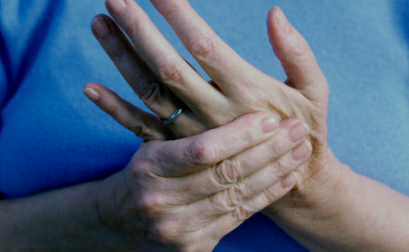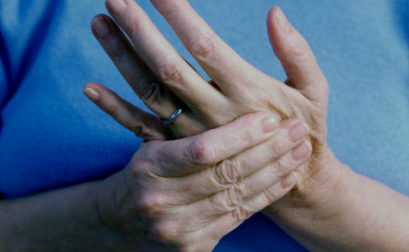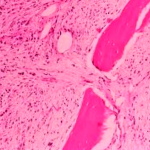What is Paresthesia?
Paresthesia is a medical term used to describe pricking, tingling, and numbness in any section of the body.It is an anomalous condition characterized by sensations of itching, burning, tingling, prickling, or numbness. Paresthesia may also be described as skin-crawling or pins-and-needles sensations. Such sensations are generally discomforting and unpleasant.Paresthesia mostly affects the body extremities such as the feet, hands, toes, and fingers. It can however affect any other part of the body as well.
It may be noted that any kind of sensation is converted into signals and directed to the brain for additional commands. The nerve cells receive the signals and send them to the spinal cord. From here, another cluster of cells check the signals and then redirect them to the brain. All areas of the body are interconnected via different kinds of nerve cells. Depending on the cause of paresthesia, tingling in feet and hands may be chronic or transient.

Types
The peripheral sensory nerves carry varied sensations from different regions of the body to the spinal cord. The signals are then directed from the spinal cord to the brain with the aid of the brain stem and trigeminal nerve. Any kind of problem or abnormality in this path can cause paresthesia.
There are two categories or types of paresthesia, i.e., transient paresthesia and chronic paresthesia.
Causes of transient paresthesia
Transient paresthesia occurs for only a few seconds or some minutes. It arises due to short-term compression of nerves. It is not a deadly condition and decreases with the passage of time. Transient paresthesia is also normally referred to as ‘pins and needles sensation.’ A few causes of transient paresthesia are listed below:
- It can occur due to a sleeping posture which squeezes the nerves present in the leg or hands.
- One of the most common causes of foot and leg transient paresthesia is being seated in a specific position for long durations of time.
- Dehydration is another known cause
- Exposure to extremely low or cold temperatures can also give rise to transient paresthesia. The condition resolves on its own as soon as the patient comes into contact with normal room temperatures.
Chronic paresthesia causes
It can be caused due to deadly underlying conditions. Untreated cases can lead to development of life-threatening complications. Some of the known causes of chronic paresthesia are listed below:
- Different kinds of thyroid disorders as well as presence of hormonal conditions such as menopause
- Some of the main causes of chronic paresthesia include autoimmune disorders such as rheumatoid arthritis, pernicious anemia, diabetes, and lupus or systemic lupus erythematosus.
- Abnormalities associated with circulatory diseases such as Raynaud’s disease, acute arterial occlusion, and atherosclerosis have been found to cause chronic paresthesia in many people. It is also one of the main causes of facial paresthesia.
- Tingling, numbness, and burning sensations in feet can also arise due to deficiencies in different vitamins like B1, B5, and B12.
- Other probable causes include disorders of the spinal cord and/or brain, brain tumors, etc.
- Certain kinds of treatment like radiation therapy or chemotherapy
- Perioral paresthesia has been found to have links with hypocalcaemia.
- Different kinds of infections, including herpes zoster virus, HIV/AIDS, Lyme disease, and herpes simplex virus, etc.
- Chronic paresthesia may also be caused by varied anomalies like blood diseases, a weakened immune system, skin conditions, and joint and bone disorders, etc.
- Consumption of certain medicines such as mefloquine, dimercaprol, riluzole, lomotil, and anticonvulsant drugs, etc. can also trigger an episode of chronic paresthesia.
- Poisoning by toxic chemicals or heavy metals, or exposure to radiation
- Presence of inherited disorders such as Fabry disease, Refsum syndrome, and Charcot-Marie-Tooth disease can also increase the vulnerability to developing chronic paresthesia.
- Intake of illegal drugs, excessive alcohol, and smoking are other causes
- Chronic paresthesia can also occur due to continuous or lasting damage to the nerves caused by different conditions like meralgia paresthetica, carpal tunnel syndrome, a pinched nerve in the spine, a transient ischemic attack or stroke, transverse myelitis, and multiple sclerosis.
Paresthesia treatment
Treatment of paresthesia is dependent on diagnosing the underlying cause of the condition and then opting for the appropriate therapy to cure that pre-existing disease.
Untreated cases of paresthesia can result in many health complications, some of which can be fatal. Hence, it is very important to treat the condition. A few complications include disability, chronic pain, respiratory problems, permanent loss of sensation, paralysis, and poor quality of life.
Transient paresthesia usually does not require medical treatment as it disappears on its own after some time.
Patients affected by chronic paresthesia should keep a lookout for reasons/causes that give rise to the condition. It will help in faster diagnosis and treatment.
Quitting smoking, abstaining from alcohol, eating a healthy and balanced diet, and regular exercising will help boost the immune system and decrease the risk to paresthesia.


